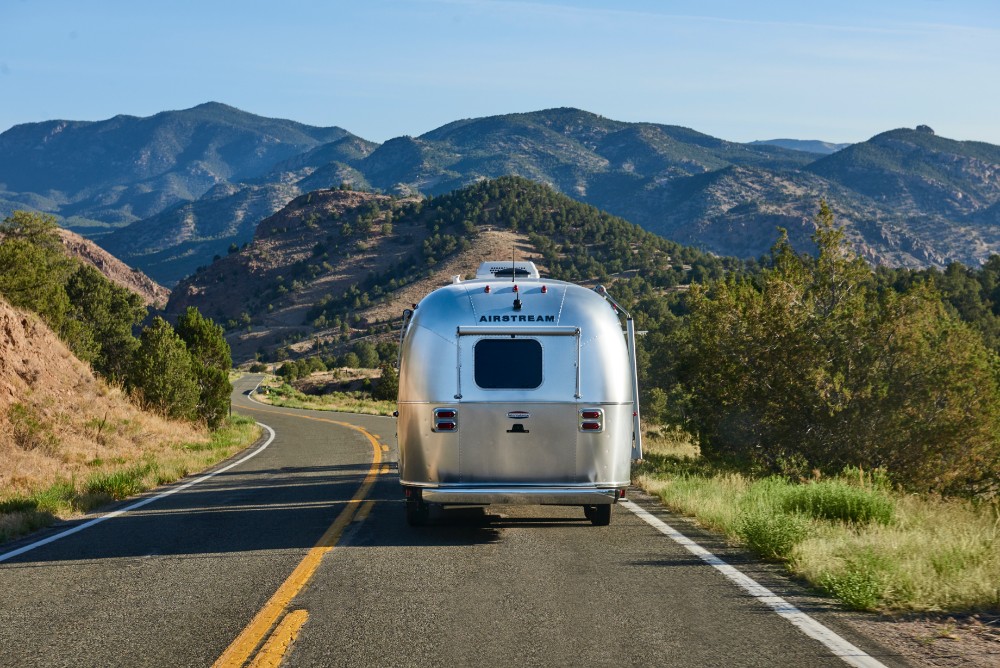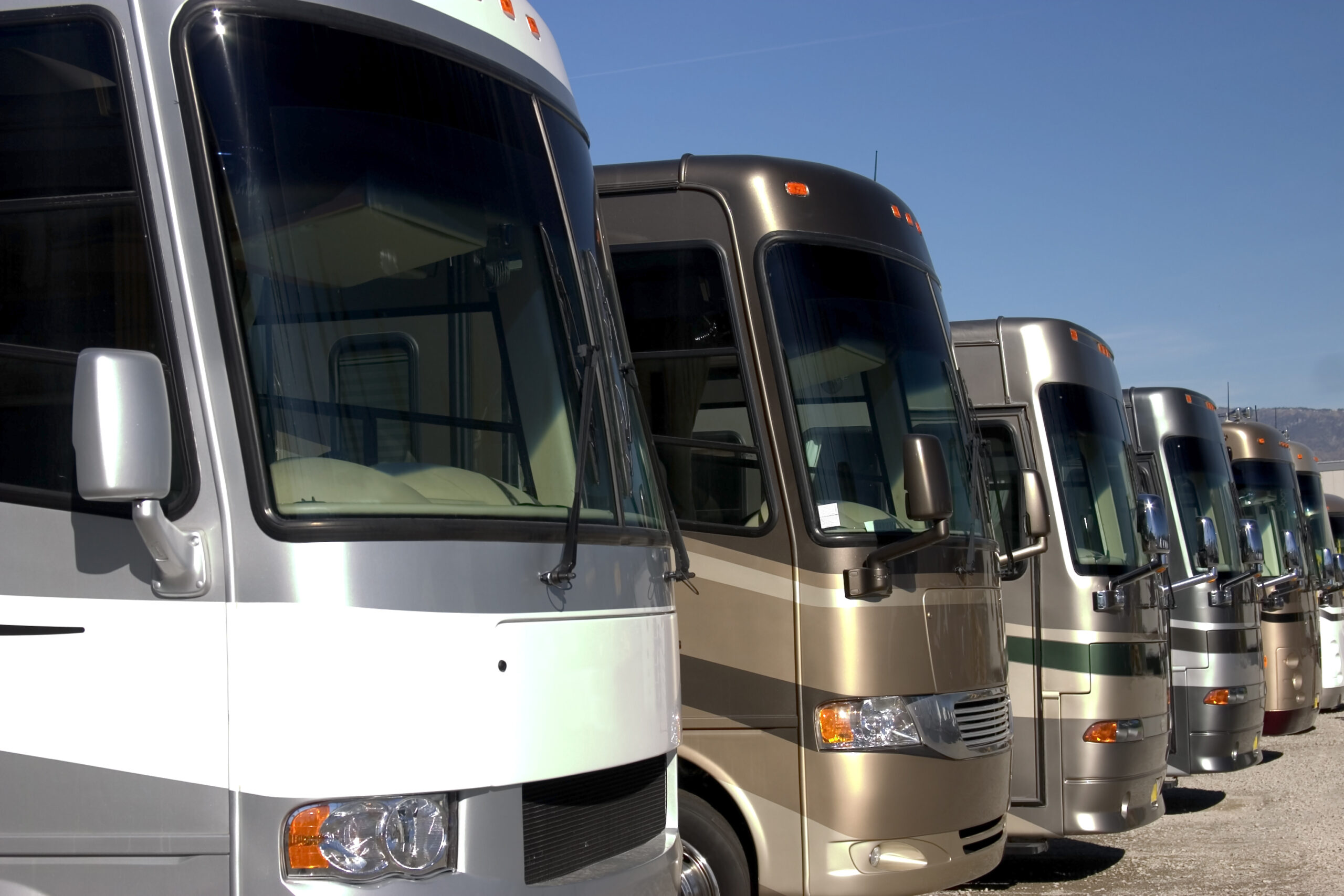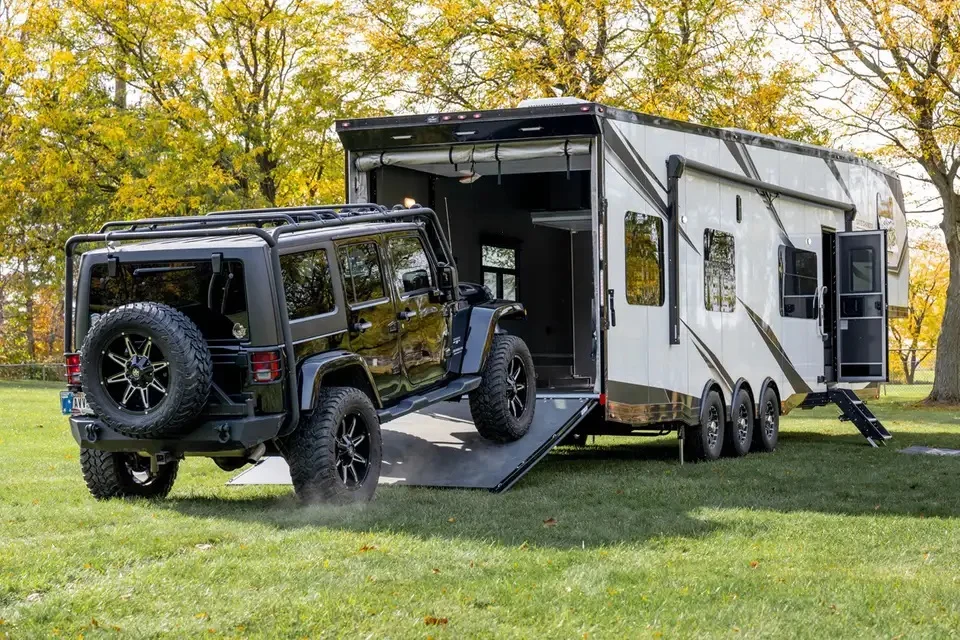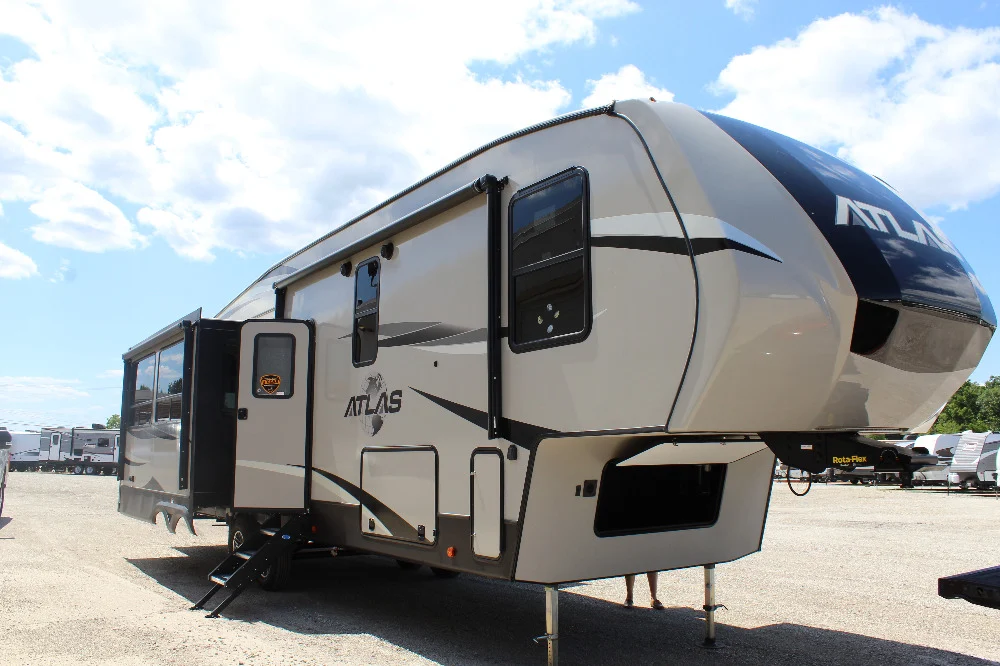If you are in the market for a new RV, you may find the process to be a bit overwhelming. First, you have to make the decision on which type of RV is right for you.
Do you want a Class A, Class C, fifth wheel, travel trailer, truck camper, skoolie, camper van, etc.? Once you answer that important question, you have to decide on a make and model. The possibilities are endless!
To save yourself from buyers remorse and wishing you had made a different purchase, do your homework before you even start the process of buying a new RV. Think about why you are purchasing the RV, what is most important to you, and of course, your budget. Here are some things to keep in mind when choosing which RV is best for you.

1. How often do you want to camp?
There are all sorts of campers out there. Those that sneak away a couple of weekends each summer, those that hit the road mid-May and don’t look back until the end of August, those that are living full-time on the road, and everything else in-between.
Having a clear understanding of how often you intend to camp is important when deciding on what type of RV to get. If you only plan on getting out a few weekends a year, there isn’t a need for anything extravagant. Chances are you’ll be spending the majority of your time outdoors anyway!
On the flip side, if you are a full-time camper, chances are you’ll be spending a reasonable amount of time in your tiny home on wheels. In this case, a travel trailer or pop-up camper may not have adequate space for you and all of your belongings.
When living tiny, there is a massive difference between 150 and 300 square feet! In addition to different RVs varying in size, they will vary in systems such as tank capacity, food storage space, underbelly storage, etc. If you are a weekend warrior, these things don’t matter nearly as much as they do when you RV the majority of the time.
2. Where do you want to go?
Do you plan on spending most of your time in RV parks? State parks? Are you maybe boondocking on BLM land? Or do you plan on flying by the seat of your pants and pulling over to sleep and eat wherever and whenever you want to?
Where you plan on spending your camping time should be taken into consideration when deciding which RV is best for you. There are many national and state parks with length restrictions.

For example, Arches National Park in Southern Utah can only accommodate rigs up to 30 feet. If you want to boondock and park wherever, whenever, it can be difficult with a large fifth wheel or in a motorhome with a tow vehicle.
A travel trailer might be best for that camping style. But, if you plan on sticking mostly to RV parks, don’t be afraid to go big! Generally, RV parks can accommodate rigs of all sizes.
Just keep in mind, a park may only offer back-in spots, so make sure you have an RV you feel comfortable backing into a tight spot! Another thing to keep in mind when thinking about where you want to camp is, will you need a vehicle besides the RV?
If so, do you want to use a one-ton truck that tows your fifth wheel as your everyday vehicle or do you want to use a Jeep Wrangler that you pull behind your Class A coach?
3. Who’s going with you?
Who will be in the camper can play a huge role when deciding which RV is best for you. If you are a solo traveler, there shouldn’t be a need to go huge. Even if you are spending a lot of time in the RV, a travel trailer or Class C should have plenty of space for you and your gear.
RVs have way more storage space than you may think! If you are traveling with kids, a fifth wheel with a separate bunk room may be the best option. If you have a full (tiny) house, you can even get a rig with multiple bathrooms!
Keep in mind any furry family members that are going camping with you too. If you have a cat, is there room for a litter box? To ensure happy campers, keep everyone’s needs and wants in mind when you decide on which RV is the right one.

4. What’s your budget?
If you’ve looked into purchasing an RV, you already know they can come with a hefty price tag. A new RV can be nice as it may be less prone to issues than a used RV. But, if you are looking to save a penny or two, there are several ways to get exactly what you want without breaking the bank.
If you have the ideal rig in mind, but the latest model is over your budget, look for an older version. It may be harder to find the rig of your dreams used, but if you are willing to search and perhaps travel to save some money, going with a used RV can be so worth it! Also, keep in mind different types of rigs can offer the same amenities at various price points.
For example, you could get the same square footage and storage space in a fifth wheel that you could get in a motorhome, but the price tags could be significantly different. And lastly, when thinking about your budget, keep in mind your rig will depreciate in value as soon as you drive it off the lot. Don’t spend more than you can because you’re not getting that money back!
Choosing the right RV for you is a big decision. An RV is a big financial commitment, and you want to make the most out of your hard earned money. You want to choose the RV that is right for you now and for years to come.
Are you already an RV owner? What advice would you give to those in the market? Comment below with your tips!




This article contains some good advice but there are some other factors to consider.
Maintenance is a huge factor. Even if you buy a new rig with a good warranty, eventually the warranty stops and you pay the costs. Extended warranties (service plans) may or may not be good. My personal experience has not been good with these plans. Shop fees run upwards to $150 / hours for service.
Insurance is another cost to weigh.. Motor homes tend to cost more because they are considered a vehicle and therefore subject to the same types of coverage your auto has, but there are other risks that should also be covered. Consult with your insurance professional for help with this.
Storage is a another costly item. While some owners may be able to store their RV at their home, many cities and homeowner’s associations will not allow that. In my area it costs upwards of $160-200 per month for outdoor covered storage. Open air storage is less expensive but that subjects your RV to all the weather factors: sun, snow, freezing rain, wind blown sand, etc.
Registration and personal property taxes may be a factor for your home residence state. There are some states where you can save on this cost but it may require you to become a resident of that state. In my state, the license plate for a class A motor home is $8.25 / years, but the personal property tax costs me over $1100 / yr. That figure will decrease as the value of the RV goes down but if you are on a tight budget, the tax could become a factor.
Operating costs (fuel) will vary considerably depending on the type of RV you buy.. Motor homes (gasoline)get 5-10 MPG, diesel do better at 10-12 MPG. If you choose a 5th wheel that requires a 1 ton truck to pull it safely, can you afford to operate that truck in you daily life?